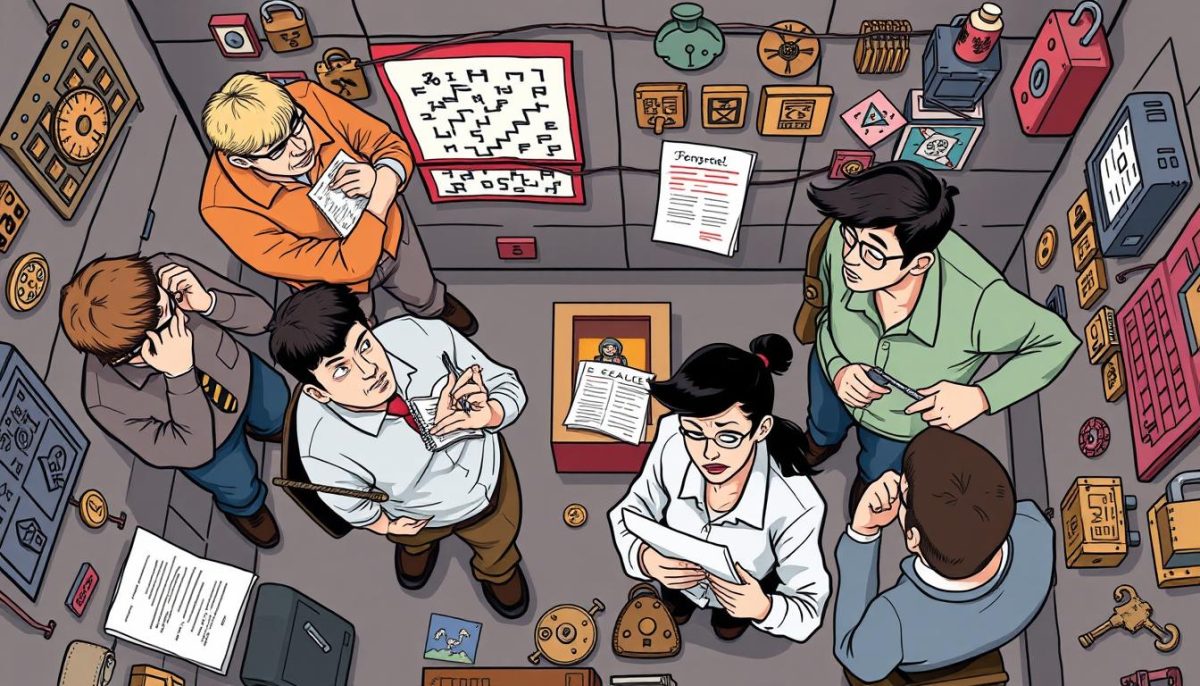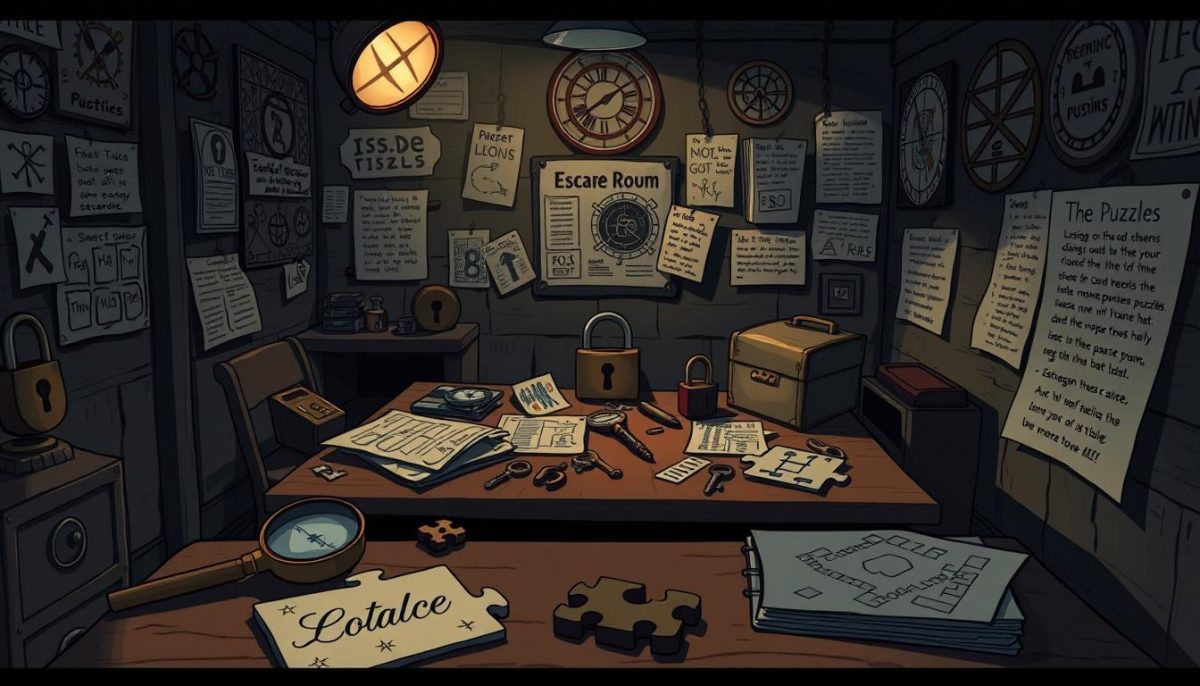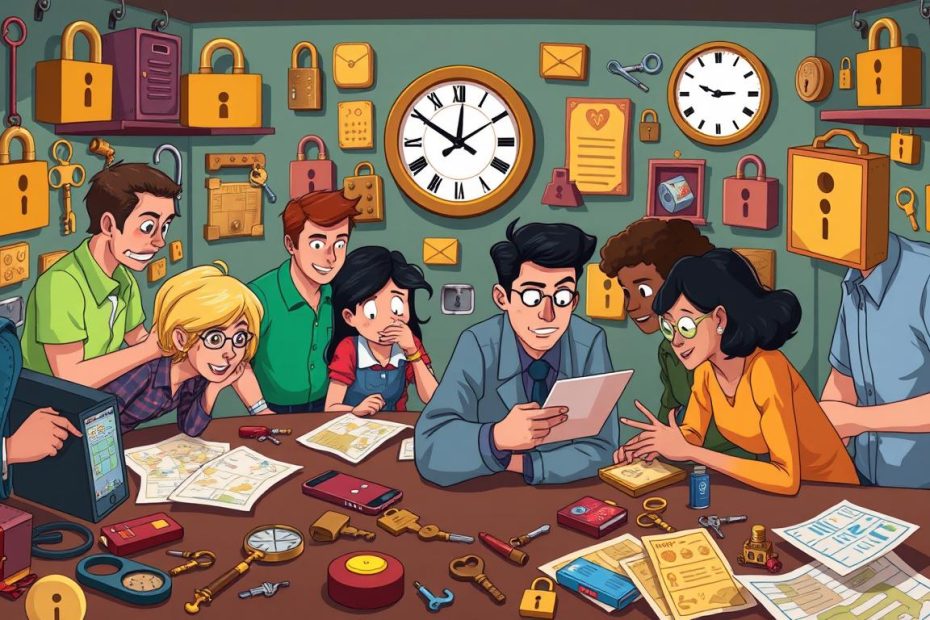As we dive into the world of escape rooms, we quickly realize that mastering these adventures requires more than just individual wit; it involves savvy puzzle solving strategies and exceptional teamwork in escape rooms. In this guide, we’ll explore 10 essential tips that can exponentially enhance our gaming experience by improving our ability to decode escape room clues. We’ll examine how cultivating strong collaboration among team members can lead to an exhilarating escape experience.
Drawing on insights from resources like “Escape Room Themed Spaces” and “Mental Strategies for Escape Rooms,” we will highlight how understanding roles within our team and developing effective communication can make all the difference. Let’s embark on this adventure together, armed with knowledge that will help us conquer the most challenging escape room scenarios.
Puzzle Solving Tips to Enhance Your Teamwork
Our experience in escape rooms becomes significantly richer when we effectively leverage teamwork. By understanding team roles in escape rooms, we can ensure that each member contributes strengths that complement one another. Let’s delve into critical aspects of enhancing our escape room collaboration.
Understanding Roles within the Team
Defining specific roles helps streamline our efforts during gameplay. We can assign roles based on individual strengths, ensuring that everyone knows their responsibilities. Key roles might include:
- Leader: Oversees the group’s progress and makes decisions.
- Observer: Focuses on the environment for hidden clues.
- Solver: Works on decoding puzzles using collected information.
- Communicator: Shares findings and maintains dialogue among group members.
Effective Communication Strategies
Clear communication in puzzles becomes the backbone of our success. We should practice open dialogue, sharing ideas without hesitation. Establishing a few communication strategies can enhance our interactions:
- Use specific terms when discussing clues to avoid confusion.
- Encourage everyone to express thoughts and theories.
- Regularly check in with each other to share progress and insights.
Trusting Each Other’s Ideas
Trust in teams plays a vital role in collaborative problem solving. When we cultivate an environment of trust, sharing and building upon each other’s ideas happens more freely. Let’s remember to acknowledge different perspectives as they can lead to innovative solutions to tricky puzzles.

By embracing our unique contributions, fostering effective communication, and building trust, we can elevate our escape room experience, making each challenge feel achievable together.
Strategies for Analyzing Clues
In our journey to master the art of escape rooms, we can enhance our skills by applying effective strategies when analyzing escape room clues. Tackling complex puzzles requires a structured approach. By breaking them down into smaller components, we can simplify challenges and improve our chances of success.
Breaking Down Complex Puzzles
One effective method for solving complex puzzles involves dissecting them into manageable segments. By focusing on one piece at a time, we can avoid feeling overwhelmed. This process allows us to concentrate on analyzing individual escape room clues, ensuring that we address each part thoroughly. Our goal is to connect the dots without losing sight of the bigger picture.
Recognizing Patterns and Themes
While we analyze clues, recognizing patterns becomes crucial. Many escape rooms incorporate recurring elements that can lead us to solutions. By identifying these patterns, we can streamline our thought processes and solve intricate challenges more efficiently. Exploring themes within the puzzles not only aids in clue interpretation but can also reveal hidden connections that may not be immediately obvious.
Prioritizing Clue Collection
Effective clue prioritization plays a significant role in our escape room success. By categorizing clues based on their relevance and usability, we can optimize our approach. This systematic collection method ensures we focus on the most critical information first, which can expedite our ability to solve complex puzzles. Implementing clue prioritization enables us to navigate the escape room more effectively and increases our chances of achieving our objective.
| Strategy | Description | Benefits |
|---|---|---|
| Breaking Down Puzzles | Isolating elements of a puzzle for easier analysis. | Reduces overwhelm and focuses efforts. |
| Recognizing Patterns | Identifying recurring themes or motifs in clues. | Facilitates faster problem-solving and connections. |
| Clue Prioritization | Categorizing clues by significance and use. | Enhances efficiency in navigation and puzzle resolution. |

Essential Skills for Overcoming Challenges
To tackle the intricate puzzles we encounter in escape rooms, honing specific skills for escape rooms is crucial. One of the most significant abilities we can develop is critical thinking. This involves not just analyzing clues effectively but also considering different perspectives and solutions. When we engage with each challenge, applying critical thinking allows us to dissect and understand even the most complex obstacles that come our way.
Adaptability also plays a vital role in our success. Escape rooms are designed to surprise us, often requiring us to shift strategies on the fly. The ability to adjust our approach when faced with unexpected turns can make the difference between moving forward or stalling. Being flexible under pressure ensures that we can navigate changes swiftly, reinforcing our problem-solving skills.
Lastly, time management is a key component in making our escape room experience rewarding. By effectively allocating our time, we enhance our efficiency when piecing together clues. Utilizing techniques like prioritizing tasks and setting mini-deadlines keeps us on track and minimizes the stress of limited time. Together, these essential skills empower us to conquer any challenge we face during our escape room adventures.
